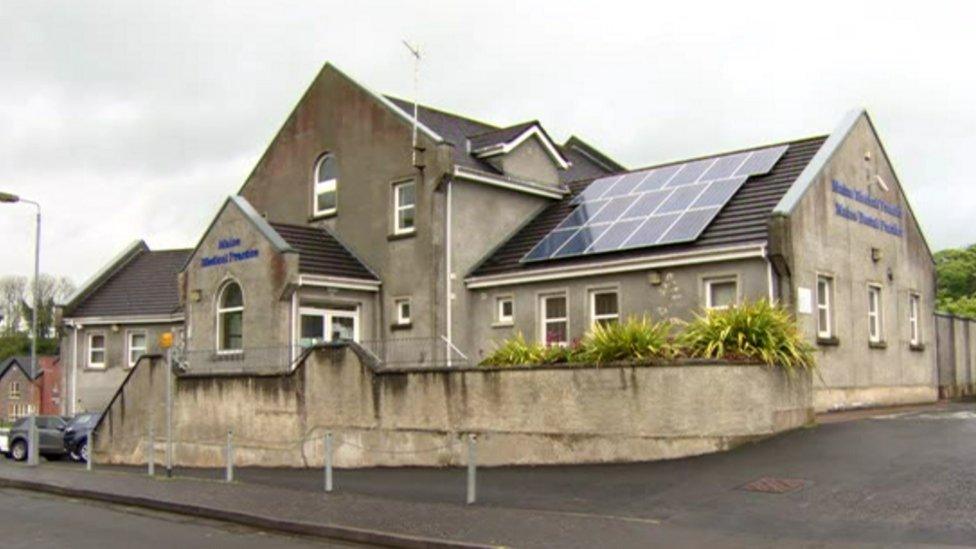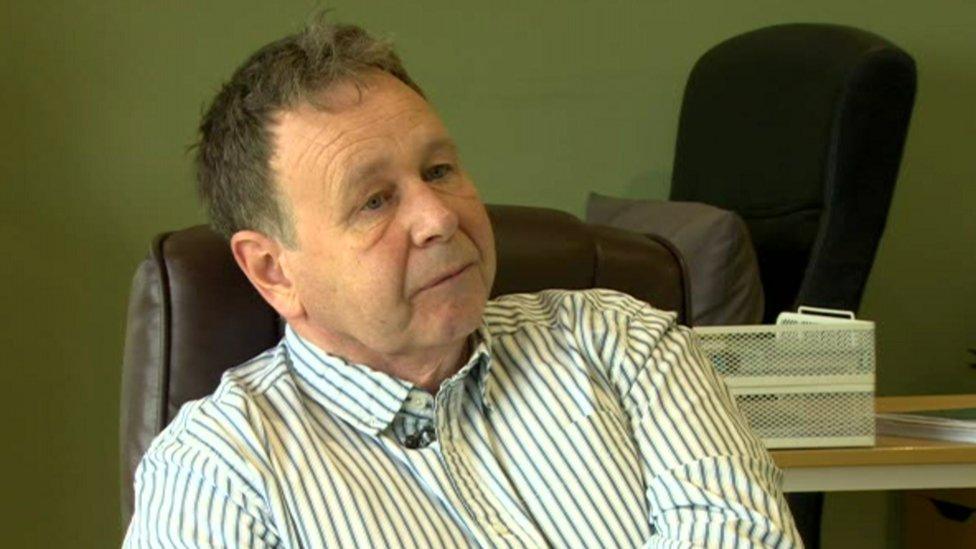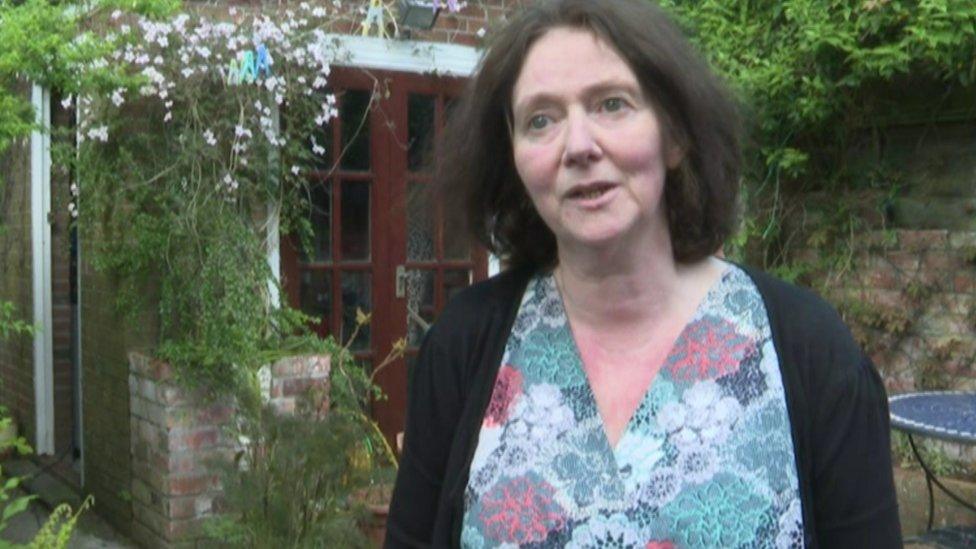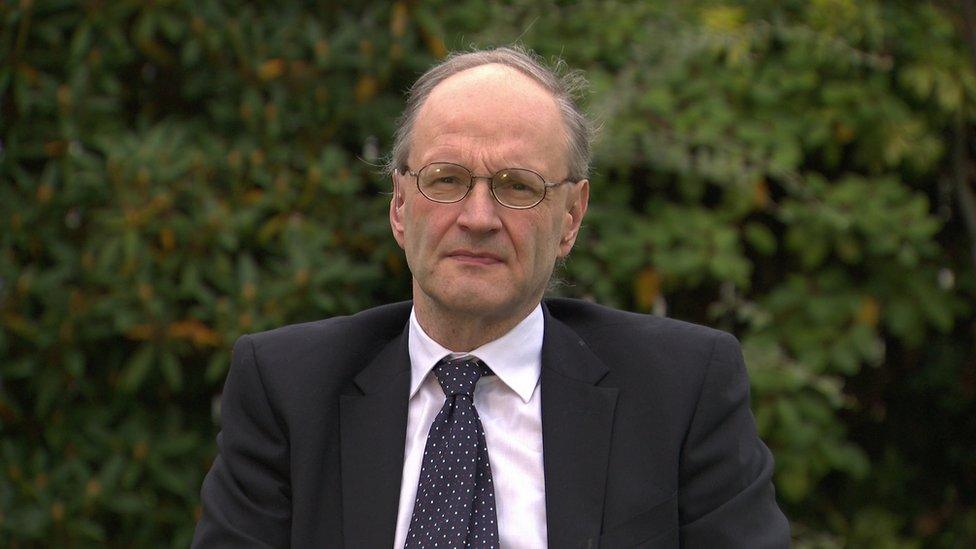County Antrim GP-based counselling service cut after tax change
- Published

A counselling service at at Maine Medical Practice in Cullybackey is coming to an end
A counselling service based in a GP practice in County Antrim has been told it can no longer operate due to a change in tax laws.
The service has been cut at Maine Medical Practice in Cullybackey.
It said it had taken the decision because a change in legislation may make the use of in-house counsellors more difficult and costly.
One of the therapists said he is worried about the effect on people's mental health.
Brian McMillan said his current clients are "devastated" and that there were more on a waiting list who now won't be seen.
"People aren't going to know where to go for that help," he said.
"Their main port of call is the GP who refers on to the counselling services.
"That's not going to be there and that's going to put more demand on the GPs.
"The GPs aren't going to have a service to refer to, so their only port of call is increasing their anti-depressant prescriptions."

Brian McMillan said he had clients on a waiting list who now won't be seen
He added: "I feel that as a service we're undervalued, we're not being respected for what we do provide.
"Where we're trying to reduce the reliance on anti-depressants, the service is being reduced or cancelled."
The new tax rules came into effect in April and mean employers like the GP practice now have responsibility for determining whether a contractor or freelance worker should be treated as on-payroll staff.
It means the employer may be responsible for accounting for and paying tax and national insurance contributions on behalf of the worker.
Mental health campaigners say they have been told that other GP practices may also consider cutting in-house counselling services due to the change in tax legislation.
Sara Boyce, from the Participation and Practice of Rights (PPR) group said: "We're hearing from counsellors that this isn't just in the Northern Trust.
"This is something that will have an immediate impact and people will feel it on the ground.
"What's shocking about this is that it's going in the wrong direction."

Sara Boyce, from the Participation and Practice of Rights group, said counselling is needed more than ever after the pandemic
She said that two thirds of practices have been providing in-house counselling but that this "has triggered a situation where practices are going to stop it altogether".
"It's obvious now, coming out of Covid with the impact on mental health, that this is something that's needed more than ever.
"It's unbelievable to think that at the worst of times we'd be losing this vital mental health support service."
'Counselling services not mandatory'
The Maine Medical Practice said: "Our counsellors have worked with us for a number of years and we have great confidence in the service, which we believe to be both professional and quality assured.
"Patients have found it to be very beneficial and GPs say it is invaluable in terms of supporting and caring for patients.
"It is particularly important at a time when other mental health services are under increasing strain.
"We are currently reviewing the situation and very much hope to resume our counselling service in the near future."
In a statement, the Health and Social Care Board said practice-based counselling services are "not mandatory and as independent contractors GP practices have the choice to contract to provide this service or not".
"HSCB is currently not in a position to know how many GP practices will contract to provide this enhanced service until returns have been made," it added.
"However, the HSCB would encourage all practices to consider contracting for this updated service."
Related topics
- Published19 May 2021

- Published15 February 2021

- Published28 May 2020
